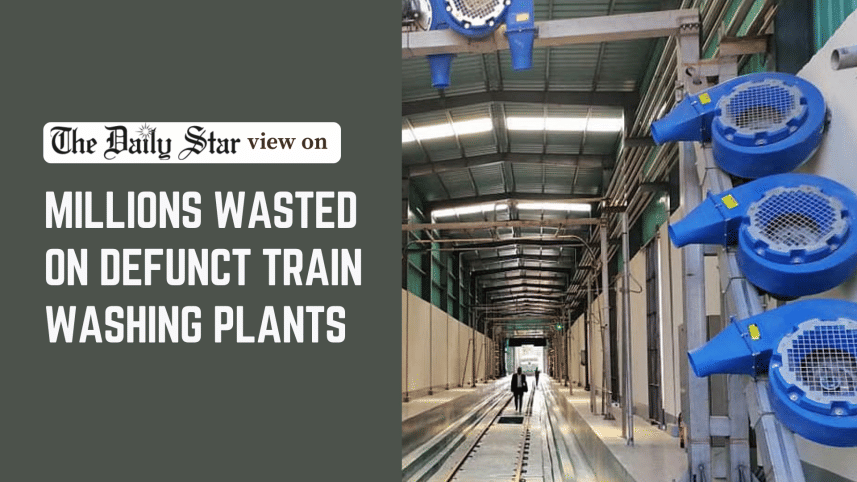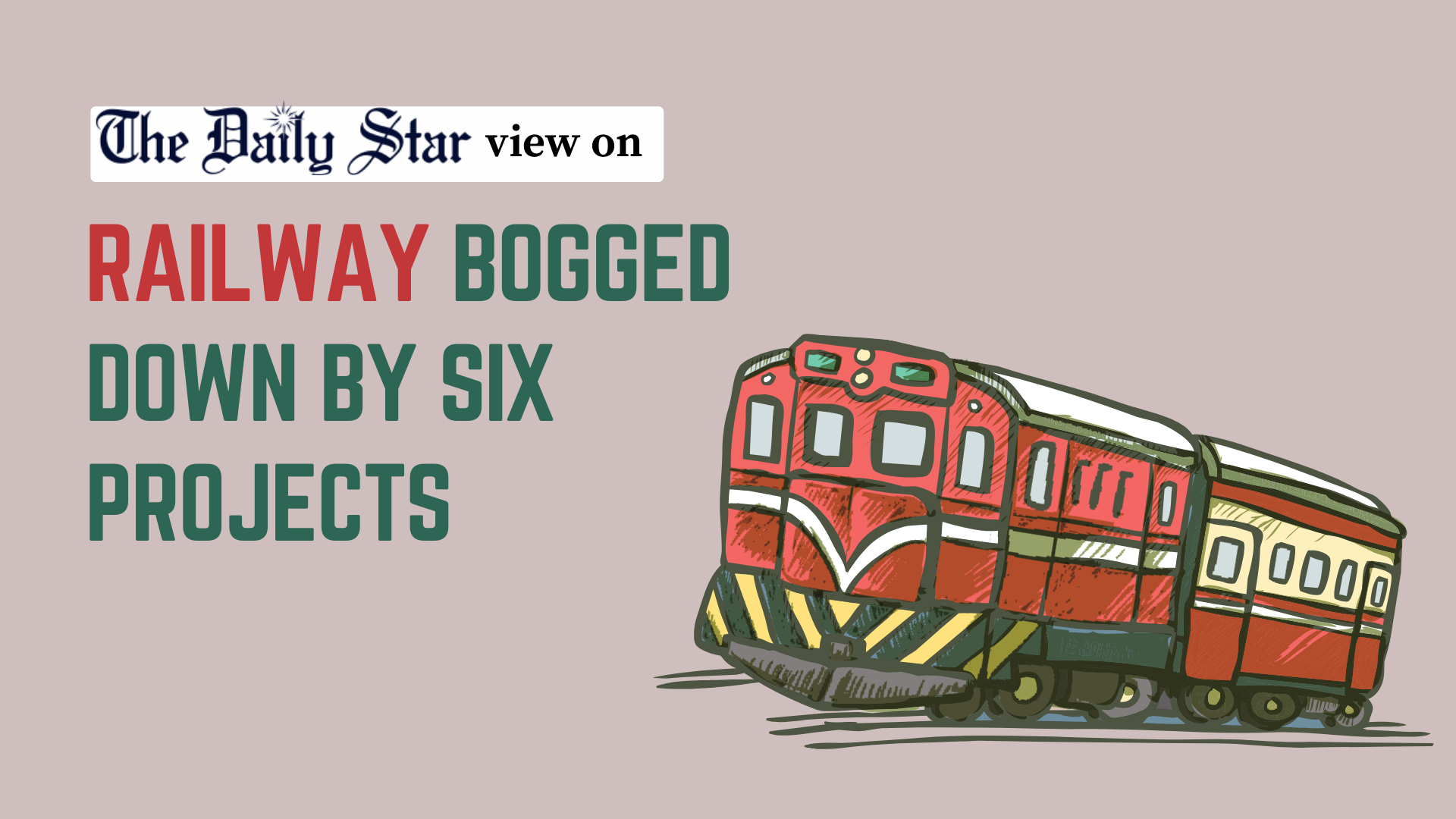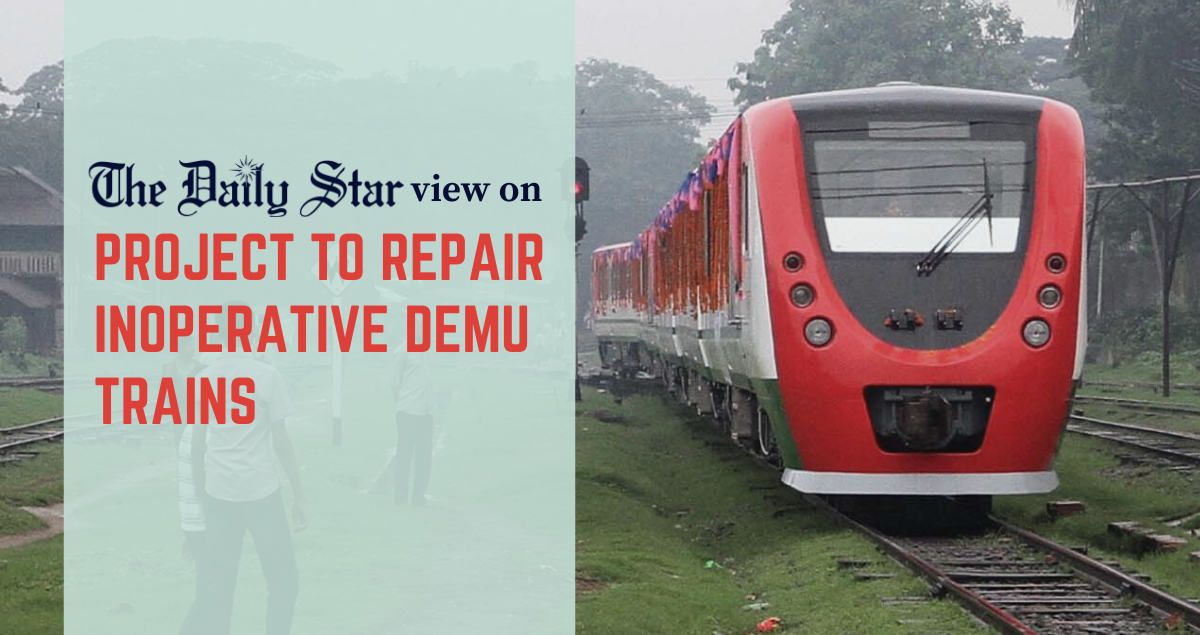Bangladesh railway must tighten its belt

In yet another exposé of corrupt practices under the Awami League government, it has been revealed that Bangladesh Railway spent about Tk 38 crore on two automated train washing plants in 2021, only for them to become nonfunctional within just 20 months. During this time, the plants managed to clean 2,929 trains. Considering the total expenditure on their procurement and installation, it means that each wash cost the government about Tk 1.3 lakh, which is quite unthinkable. For context, only Tk 1,000 or so would have been required for a manual wash. This case, reported by Prothom Alo, serves as a glaring example of how government projects were often wasteful, mismanaged, and riddled with questionable procurement decisions.
The automated washing plants, purchased as part of a railway coach procurement project and set up in late 2021, were meant to modernise train cleaning by saving time and minimising water consumption. Instead, they turned out to be an overpriced failure. Not only did they cease to function in less than two years, but even when operational, they failed to clean train interiors, including toilets, requiring manual labour afterward. The entire endeavour reeks of a plan designed more for inflating project costs and lining the pockets of those involved than for serving the public.
Unfortunately, the railway sector was plagued by such corruption and mismanagement throughout the 15-plus years of Awami League's rule. And unnecessary procurement or excessive spending using various excuses was the hallmark of such ill-conceived projects. For instance, three officials visited the US apparently to "see the effectiveness" of the automated washing plants, one of them retiring soon after the purchase. As part of various projects, four tamping machines—used in track repairs—were also purchased, each at a cost of Tk 15-30 crore. These machines are now mostly non-functional. The plight of the DEMU trains imported from China is also well-known. There have been many such procurements and expenditures that were not needed, or carefully thought through, but were green-lighted anyway only to fulfil the wishes of politically-backed contractors and railway officials, who hardly ever faced justice for such corruption.
This must change. A country with scarce resources cannot afford to waste billions on dysfunctional projects while essential public services struggle for funding. We urge the authorities to conduct a thorough investigation into the washing plant fiasco and other such failed initiatives, and hold to account those behind them. Bangladesh Railway, and by extension all public offices, must ensure that all projects and procurements follow strict cost-benefit analyses, and that they are utilised properly to serve the public.



 For all latest news, follow The Daily Star's Google News channel.
For all latest news, follow The Daily Star's Google News channel. 


Comments